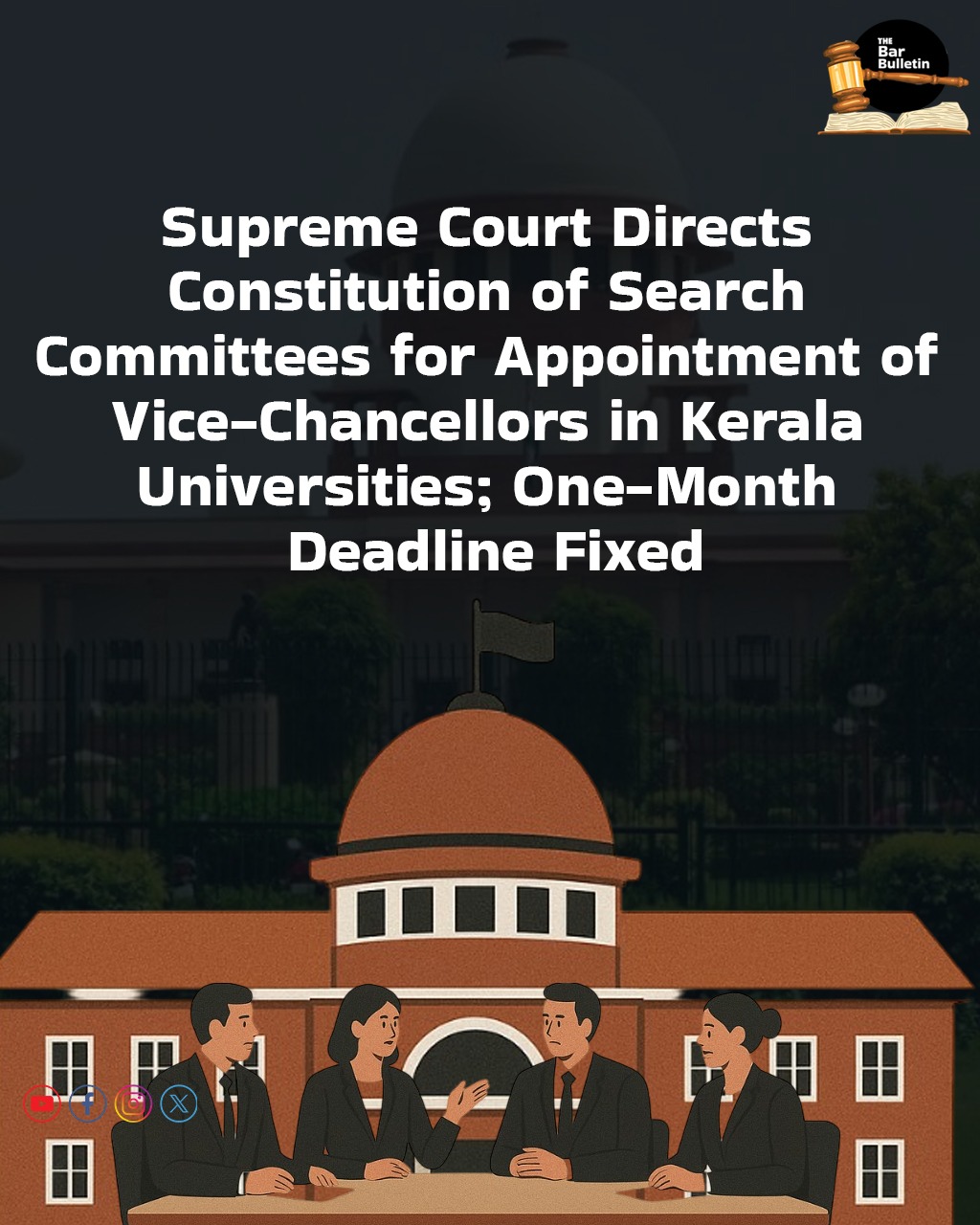The Supreme Court directed the immediate constitution of Search-cum-Selection Committees to appoint Vice-Chancellors to two Kerala universities, thereby resolving the dispute between the Governor and the State Government over temporary appointments.
A Bench of Justices J.B. Pardiwala and K. Viswanathan was hearing a plea filed by the Kerala Governor, in his capacity as Chancellor of A.P.J. Abdul Kalam Technological University, challenging a Kerala High Court decision that struck down his temporary Vice-Chancellor appointments. The High Court had held that the appointments bypassed the statutory framework under the University Act and UGC Regulations, which mandate a Search Committee process.
The Governor defended his action, arguing that his powers as Chancellor permitted temporary appointments to prevent administrative paralysis. The High Court, however, found that such appointments could not override the statutory procedure. Aggrieved, the Governor approached the Supreme Court, contending that the High Court curtailed his authority.
The Supreme Court, stepping in to end the standoff, directed that separate Search-cum-Selection Committees be constituted for each university. Both committees will be chaired by Justice Sudhanshu Dhulia, former judge of the Supreme Court, with two members each nominated by the Chancellor and the State Government. The Committees are to prepare alphabetically arranged panels of at least three names per university and submit them within two weeks of the applications being scrutinised.
The Court further directed:
• The Higher Education Department of Kerala will act as the nodal department and issue advertisements for the posts within one week, clearly specifying eligibility criteria.
• Applicants will have four weeks to apply.
• The Department must scrutinise applications within one week and forward them to the Chairperson.
• The Committees must complete the process within six weeks, in line with the request of Attorney General R. Venkataramani, appearing for the Chancellor, to shorten the earlier 90-day timeline.
• Justice Dhulia will be provided honorarium, office facilities, secretarial assistance, transit accommodation, and an official vehicle, in keeping with his constitutional office.
Importantly, the Court clarified that while these directions ensure timely appointments, they are without prejudice to the larger issues pending in the litigation. The Bench reiterated that the ultimate power of appointment vests with the Chancellor but stressed that transparency and adherence to UGC norms must govern the process.
With these directions, the Supreme Court disposed of the Governor’s plea.



